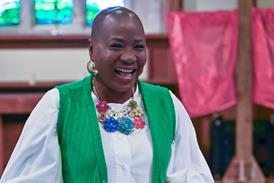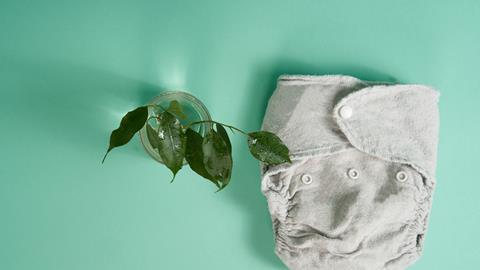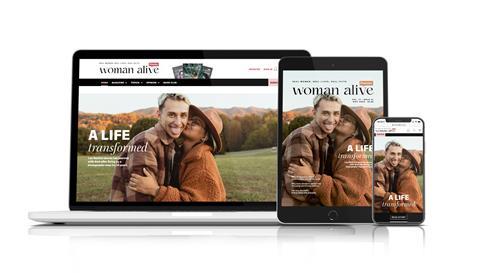Cathy Madavan reminds us that our children are learning what godly living looks like by watching us
From the moment I became a mother I was faced with numerous ethical decisions: which kind of nappies I should use, which milk or food brand is least corrupt and whether to buy only second-hand toys. Then I had to consider the ‘rights’ and ‘wrongs’ of how to discipline my toddler and how to juggle work and parenting. As if I didn’t feel inadequate and guilty enough in those early years, being constantly bombarded with messages (often from other mothers) about my choices was sometimes overwhelming.
In truth, we all make choices continually, which reveal our values and beliefs. We might not label our daily decisions as ethical ones, but they often are. Those of us who are parents are demonstrating the rules of the game of life to our children through our decisions too. We model something about how to follow societal rules, but we may also excuse breaking them for one reason or another (but I needed to pause on the double yellow lines, officer!). However, in a world where morality is increasingly flexible and where truth and fake seem like interchangeable commodities, our choices as parents matter. I would argue that not only is ethical parenting possible, it is also more necessary than ever.
It’s not fair!
Children have a marvellous moral compass when they are young, don’t they? You’ll often hear heartfelt cries of: “But it’s not fair!’ They are right of course; life is often not fair – especially for girls. Globally, girls face structural oppression and far less opportunities for education and independence. Closer to home, it’s also not fair that girls are judged on their appearance, are likely to face harassment or worse, may endure assumptions about their abilities or roles and may be paid less for their equal efforts. Even in church, females may be less likely to be asked to preach or lead than their male counterparts. And yes, that unfairness does matter because all injustice matters.
Curiously, this unfairness and the disparity felt by many creates an ethical conundrum, and the mantra in our culture is increasingly this: Life is not fair, so just cheat. Short-cut the process. Make it however you can, and the end really does justify the means. It might not be fair, but do it anyway.
Now, most of us reading this are thoroughly decent human beings. However, I’ll be honest with you, I have occasionally wondered if parenting encourages people to leave their ethics in the hospital delivery room! I’ve watched mothers hustle and negotiate their child into the spotlight role or the top set. I’ve witnessed parents subjecting children to gruelling extra classes to get into the right school (right for whom, I’ve sometimes wondered). Come World Book Day, the children of certain parents arrive parading outfits that cost more than an entire shelf of actual books. Other times, I’ve been stunned at mums in the playground excusing the writing of not-quite-the-whole-truth letters when their child has missed an essay deadline. It makes me wonder how many great works of fiction have been written to teachers the day after a Taylor Swift concert in the last year! But should our ethics really become so flexible when we apply them to ourselves?
Do the right thing, not the easy thing
Of course, as a mum, I too want to protect my children and to ease their way in the world. But, whatever our personality, privilege and parenting style, we also need to check our own compulsions and to push back on our instincts if necessary. After all, we are role models who demonstrate what good and godly behaviour looks like to our children. You may not be Mother Teresa, but ethical parenting means demonstrating how to do the right thing even if it is not always the easy or popular thing. After all, integrity means making good choices whether people see it or not, and whether we are rewarded for it or not. We want to give our children the confidence to make those good choices for themselves.
This is where the Church and Jesus’ upside-down kingdom should shine brightly, especially in a culture that blatantly encourages individualism, materialism and narcissism. While it might feel impossible to upend the world’s injustices, together we can campaign, raise funds and serve in areas that genuinely change people’s lives. And each day we can follow Jesus’ example and start small by choosing to do the honest thing and the honourable thing, thereby demonstrating to the world what we believe to be true. Even those small (but sometimes inconvenient) decisions like choosing fairly traded chocolate, recycling, taking groceries to the foodbank, telling the truth, forgiving rather than gossiping and doing our best work, all incrementally make the world a better place.
Ask ethical questions
Funnily enough, my daughters have not always been delighted to hear my oh-so-helpful advice about trying to live a good and God-honouring life. It turns out, however, their commitment increases significantly when they feel they have made the choices for themselves. So, when they were old enough, I’d ask questions like: “What do you think would be the right thing to do?”, “What would the consequences of that choice be?” or “Does it matter whether you/they tell the truth or not?”. Unsurprisingly, they have then asked similar questions back to me, challenging my excessive consumption or my excuses for not doing the right thing! There is nothing like parenting for holding up a mirror to yourself. In fact, over the years we have regularly sat as a family around the dinner table and wrestled with the injustices, issues and moral conundrums of the day, ranging from the playground to politics. Often there are no easy answers, but there are always opportunities to learn and to ask not only what does God want us to do, but, as importantly, who does he want us to be in this situation?

































No comments yet